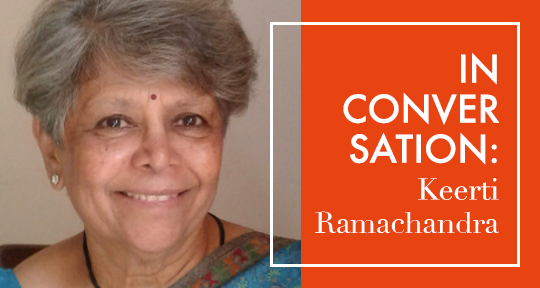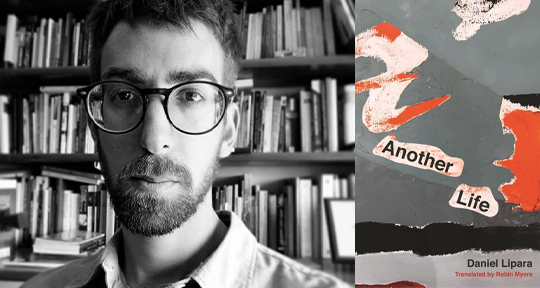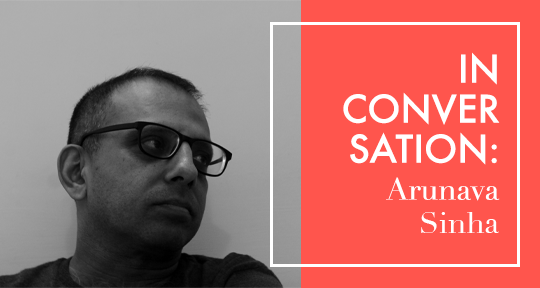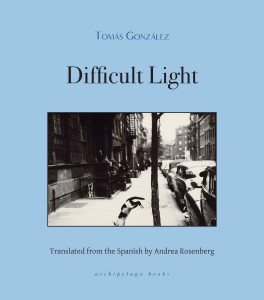Arunava Sinha is a Delhi-based translator literary translator who works from Bengali to English and English to Bengali. He is the winner of the Crossword Book Award for Sankar’s Chowringhee (2007) and Anita Agnihotri’s Seventeen (2011), and sixty-six of his translations have been published so far, including a collection of Modern Bengali Poetry, novels by acclaimed writers such as Buddhadeva Bose and Sangeeta Bandyopadhyay, and a collection of Bengali short stories. He teaches in the creative writing department at Ashoka University and works as the books editor at Scroll.in.
I met him for the first time in 2019, when I worked as his teaching assistant. In a small class of six students, translating out of Hindi, Tamil, and Bengali, we worked on hearing the voice of a book and how to articulate it in a different language.
In this Zoom conversation, Sinha talks about translating Khwabnama by Akhtaruzzaman Elias, the questions he receives in his literary translation classes, and the publishing industry in India.
Suhasini Patni (SP): You’ve been translating for many years. In your latest interview with Forbes, you said you developed an interest in literary translation after realizing that Gabriel Garcia Marquez’s One Hundred Years of Solitude was a translation. Can you talk about your journey so far?
Arunava Sinha (AS): It began as an interest in college. I was an English literature student, and as you said, it struck me that these words we’re marveling over when we’re reading Garcia Marquez are really written by somebody else. I wanted to know what writing those words might be like. And of course, it immediately showed me that translation is completely different from what we assume it is. It’s all that is not said but that you are hearing at the back of your head. It is so little about the dictionary meaning because that’s the most easily solved problem. That is what makes a text so rich and what makes translation so interesting.
I had forgotten about translation because I moved to Delhi and switched jobs. It wasn’t until an editor at Penguin called me, asking me about Sankar’s Chowringhee that I rekindled my journey. And it was just at the right age for a midlife crisis, too!
SP: What kind of books did you begin with translating?
AS: I started with the canon, partly because there were not too many translations of the best-known books from Bangla at the time. There were a number of English publishers, and they were hungry for books to publish and there were not enough writers in English. So, it was quite a happy combination of circumstances. There was plenty of variety in the writing in the canon, but if you really step back and look at the big picture, it represented just one segment of possible writing in Bangla. That is what led me to start looking for texts with more diversity, both in terms of the content and the writer. People who wrote regularly did with a certain kind of lucidity which I think was market-facing even if they didn’t tell themselves so. But their books were written to be read by large numbers of people. They adopted a certain lucid idiom. Their art lay in playing with lucidity, but they never became obscure except for some experimental writers. When the field widened and I had other types of books to look for, they were not as bothered about the market. And they wrote in much stronger, much more literary—by literary I don’t mean high literary—but much more of an idiom that only literature can accept and accommodate. This of course has also made translation a more complicated but invigorating task. As you do more of the same thing, you want your challenges to get bigger.
It was partly this that led me to the text, until now, I think was the toughest to translate, which is Akhtaruzzaman Elias’s Khwabnama, which is daunting not just because of the actual language but also because you immediately realize the quality of that book and you are terrified that you will not be able to preserve it in the translated version. I think this was the biggest concern for me. I’m still not sure if it has worked or not. And I don’t think I ever will be. When you’re translating, your real challenge is the language, it’s not the literature. At that point, you’re not thinking of the literature, you’re just thinking of how to get a sentence across. Miraculously, somehow if you do it right, then all the pieces fall into place.
READ MORE…









What’s New in Translation: August 2021
New work this month from Lebanon and India!
The speed by which text travels is both a great fortune and a conundrum of our present days. As information and knowledge are transmitted in unthinkable immediacy, our capacity for receiving and comprehending worldly events is continuously challenged and reconstituted. It is, then, a great privilege to be able to sit down with a book that coherently and absorbingly sorts through the things that have happened. This month, we bring you two works that deal with the events of history with both clarity and intimacy. One a compelling, diaristic account of the devastating Beirut explosion of last year, and one a sensitive, sensual novel that delves into a woman’s life as she carries the trauma of Indian Partition. Read on to find out more.
Beirut 2020: Diary of the Collapse by Charif Majdalani, translated from French by Ruth Diver, Other Press, 2021
Review by Alex Tan, Assistant Editor
There’s a peculiar whiplash that comes from seeing the words “social distancing” in a newly published book, even if—as in the case of Charif Majdalani’s Beirut 2020: Diary of the Collapse—the reader is primed from the outset to anticipate an account of the pandemic’s devastations. For anyone to claim the discernment of hindsight feels all too premature—wrong, even, when there isn’t yet an aftermath to speak from.
But Majdalani’s testimony of disintegration, a compelling mélange of memoir and historical reckoning in Ruth Diver’s clear-eyed English translation, contains no such pretension. In the collective memory of 2020 as experienced by those in Beirut, Lebanon, the COVID-19 pandemic serves merely as stage lighting. It casts its eerie glow on the far deeper fractures within a country riven by “untrammelled liberalism” and “the endemic corruption of the ruling classes.”
Majdalani is great at conjuring an atmosphere of unease, the sense that something is about to give. And something, indeed, does; on August 4, 2020, a massive explosion of ammonium nitrate at the Port of Beirut shattered the lives of hundreds of thousands of people. A whole city collapsed, Majdalani repeatedly emphasises, in all of five seconds.
That cataclysmic event structures the diary’s chronology. Regardless of how much one knows of Lebanon’s troubled past, the succession of dates gathers an ominous velocity, hurtling toward its doomed end. Yet the text’s desultory form, delivering in poignant fragments day by elastic day, hour by ordinary hour, preserves an essential uncertainty—perhaps even a hope that the future might yet be otherwise.
Like the diary-writer, we intimate that the centre cannot hold, but cannot pinpoint exactly where or how. It is customary, in Lebanon, for things to be falling apart. Majdalani directs paranoia at opaque machinations first designated as mechanisms of “chance,” and later diagnosed as the “excessive factionalism” of a “caste of oligarchs in power.” Elsewhere, he christens them “warlords.” The two are practically synonymous in the book’s moral universe. Indeed, Beirut 2020’s lexicon frequently relies, for figures of powerlessness and governmental conspiracy, on a pantheon of supernatural beings. Soothsayers, Homeric gods, djinn, and ghosts make cameos in its metaphorical phantasmagoria. In the face of the indifferent quasi-divine, Lebanon’s lesser inhabitants can only speculate endlessly about the “shameless lies and pantomimes” produced with impunity. READ MORE…
Contributors:- Alex Tan
, - Fairuza Hanun
; Languages: - French
, - Hindi
; Places: - India
, - Lebanon
; Writers: - Charif Majdalani
, - Geetanjali Shree
; Tags: - Beirut 2020 explosion
, - diary
, - disaster
, - Indian Partition
, - motherhood
, - recovery
, - social commentary
, - trauma
, - womanhood